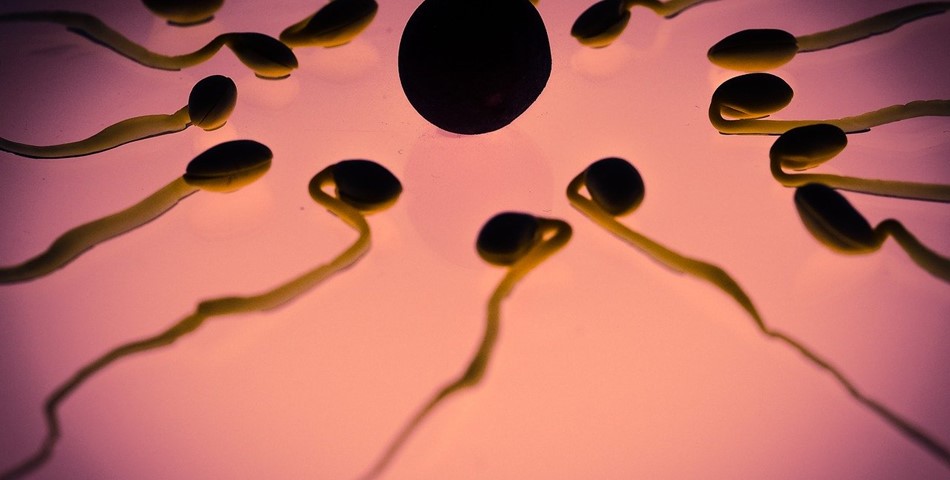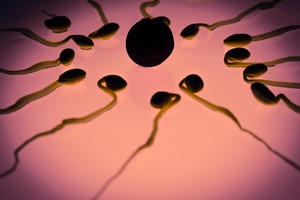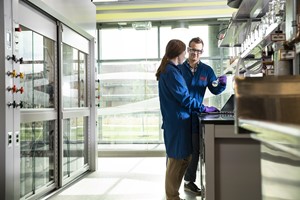Infertility affects around 15 per cent of couples, a shockingly high statistic. Usually, it’s women who are burdened with the concept of the biological clock with societal pressures of conceiving before the age of 40. However, more recently, attention on fertility has shifted towards men.
New research has suggested that men should consider freezing their sperm before reaching the ‘advanced paternal age’ of around 35 to 45. Beside decreased fertility levels, older sperm is said to suffer in ‘fitness’, and can increase risk of pregnancy and birthing complications, disorders and diseases in infants, and preterm birth.
Something particularly vulnerable to the high stress levels of the 21st century is sperm. It’s been recorded that sperm counts in Western men have been dropping by roughly 60 per cent since the 1970s. Although it’s best for both partners to be alert when it comes to fertility levels, this article will look at things that affect fertility and methods men can focus on to improve it.
High Stress Levels
It’s practically impossible to avoid encountering any sort of stress in your life. However, if you experience high levels for a prolonged amount of time, this can be harmful towards your sperm count. Research by Columbia University found that stress hormones, such as glucocorticoids, can reduce levels of testosterone and sperm production. In turn, this can affect the concentration and ability to fertilise an egg. Not only fertility, but your sex drive will also decrease, which may affect the amount of sex you have.
If you feel like you experience a lot of stress, it’s important that you try to manage or cut out the things in your life that are causing you to be stressed.
Heavy Drinking
Drinking excessive amounts of alcohol can also be damaging towards fertility. Heavy drinking has become a huge part of UK culture — Britain has been ranked the worst nation for binge-drinking across the world, with men being likely to drink more than women. Heavy drinking has also been linked to a decrease in testosterone and sperm production. Therefore, it’s recommended that if you plan on conceiving in the future, it’s probably best to avoid drinking to excess. This will benefit you in the future as well as improving your general health, so why not?
It’s likely that many of us experience high stress and drink frequently. There are supplements that you can take to increase fertility such as coenzyme q10 tablets, which is an antioxidant recommended to increase sperm motility.
Weight, Diet & Exercise
It should come as no surprise that health can play a contributing factor in fertility. A healthy, balanced diet helps regulate almost everything with our bodies. At least five portions of fruit and vegetables are recommended every day by the NHS, alongside carbohydrates, lean meat and pulses.
Being both overweight or underweight will affect the quality of your sperm. If you’re trying to conceive, consider adjusting your body mass index to a healthy number between 18.5 and 24.9 through exercising and a healthy diet. Although this may be hard to commit to, it will increase your chances of succeeding in starting a family.
Pesticides & Chemicals
Unfortunately, the modern world goes hand in hand with many new and unfamiliar chemicals designed to ward off pests damaging our crops. By their nature, pesticides are toxic to the animals, fungi and insects they’re created to kill, and to humans too.
A hot topic over the last few years is that fruit and vegetables with pesticide residue have been found by research by Harvard to affect men’s fertility. Men who ate the most amount of fruit and vegetables with high amounts of pesticides had a sperm count lower by 49 per cent. This research has been met with much controversy, particularly as the sample of participants came from a fertility clinic, which doesn’t reflect the general population.
Although a lot of our food is exposed to pesticides, it’s inconclusive whether this is a concern, and more research is required with a sample that isn’t biased. The NHS recommends that you don’t stop eating fruit and vegetables, as this would be even more damaging to health and fertility. If it’s a genuine concern for yourself, consider buying organic food that hasn’t been treated with pesticides and man-made chemicals.
If you’re struggling to conceive and are worried about your fertility levels, it’s always best to seek medical advice. Of course, taking an active interest in improving your fertility levels is a step in the right direction and bearing in mind all the above information is a great place to start.
Pharma Nord













